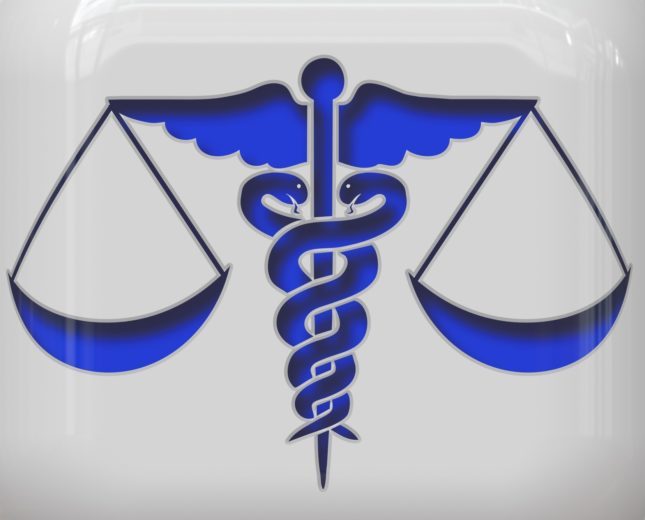Research on Deception and Placebos
Recently, there was a study on IBS (irritable bowel syndrome) in which the subjects were told they were getting placebo and that it would work. It did work. The authors declared, “Deception is not necessary for a placebo to work!”
The essential criticism was that placebos are inert therapies that don’t work so telling the subjects that the placebo would work was a lie. Therefore, the placebo effect in this study was a routine deception based placebo effect. Nothing new here.
This study was done by people who support CAM (complementary and alternative medicine) and was funded by NCCAM (National Center for Complementary and Alternative Medicine). The advertisement to enlist subjects said it was a “mind-body” study. Suffice it to say, there was tons of bias. Also, the study was intentionally done backwards. It was totally open-label with no control group. The main difference between the two treatment groups was placebo plus positive suggestion vs. no treatment and no positive suggestion.
The NCCAM has since changed it’s name to NCCIM which stands for National Center for Complementary and Integrative Medicine and it’s leadership changed so it is now being run by people who in my opinion are more scientific in their orientation.
Since the placebo effect worked despite the subjects being told it was a placebo the critical question becomes, “Were they really deceiving the subjects or not?”
Placebos DO work. That statement is not in debate. If placebos did not work we would not be having this conversation. The question that we are debating is not, “Do they work,” it is, “How or why do they work.” Do they work by misperception, Tom Foolery or is there a real brain mechanism at play? If they work only by misperception or Tom Foolery then I would agree that they don’t really work.
It turns out that they do work by misperception and Tom Foolery and we have known that for a long time. More recently with the advent of new ways to image the brain there have been numerous studies demonstrating that they can also work through a real brain mechanism.
That brings it into my world…Neuroscience. How does the brain work? That is something I know something about.
We have discovered over the past 15 years that non-pharmacologic intervention mediated through suggestion and expectancy can trigger compensatory brain responses mediated by neurotransmitters (brain chemicals). You can use hypnosis, cognitive-behavioral psychotherapy, sugar pills, or acupuncture needles to reduce pain, nausea, anxiety, depression and OCD. Functional brain imaging reveals that the neural pathways involved are similar between subjects who receive these non-pharmacologic therapies and subjects who receive exogenous (from outside the body) opioids, antihistamines, serotonin and norepinephrine for these same conditions.
The key point is that suggestion and expectancy are the active ingredients that trigger the brain response. The kind of placebo effect that works through real brain mechanisms treats conditions that are related to compensatory brain responses. It does not primarily treat real illnesses or conditions such as an infection or a cancer. It can also help general health to be optimal so in that sense it can be supportive or complementary therapy to the treatment of things like cancers and infections.
Some may argue that you can’t lump things like psychotherapy and sugar pills together. You can’t say that massage therapy, homeopathy, hypnosis, chiropractic care, etc. are all the same thing and work in the same way. Yet that is exactly what I am saying.
I argue that there is a common thread among all these therapies. There is no active pharmacologic therapy involved. The active therapy is communication that results in a change in brain function. Also, each of these therapies is carefully crafted to play the human brain like it was a piano. They feed into the brain the correct input in the correct programming language and the brain spits out predictable responses due to how it is programmed.
In conclusion, placebo effects that are related to suggestion and expectancy and mediated by compensatory neurotransmitters do have a physiological mechanism of action. Therefore, in selected patients who have a placebo responsive condition a physician can truthfully say that a placebo will work. The conclusion that a placebo effect can be achieved without deception appears to be accurate based on this study and attempts to replicate these findings should be attempted.
-Morgan Levy, MD
References
Dougherty DD, et al. (2008). A combined -11C diprenorphine PET study and fMRI study of acupuncture analgesia. Behavioural Brain Research. Nov. (2008);-193(1):-63–68.
Fabrizio Benedetti, et al How Placebos Change the Patient’s Brain Neuropsychopharmacology. 2011 Jan; 36(1): 339–354.
Faymonville ME, et al Neural mechanisms of antinociceptive effects of hypnosis Departments of Anesthesiology and Intensive Care Medicine and Neurology, and the Cyclotron Research Centre, University Hospital of Liege, Liege, Belgium Anesthesiology (2000) May;-92(5):-1257-67.
Furmark, T. et al. A Link between Serotonin-Related Gene Polymorphisms, Amygdala Activity, and Placebo-Induced Relief from Social Anxiety The Journal of Neuroscience, 3 December 2008, 28(49): 13066-13074
Goldapple K., MSc; et al Modulation of Cortical-Limbic Pathways in Major Depression Treatment-Specific Effects of Cognitive Behavior Therapy Arch Gen Psychiatry. Arch Gen Psychiatry (2004);-61:34-41.
Kaptchuk et al Placebos without Deception: A Randomized Controlled Trial in Irritable Bowel Syndrome Ted PloS Dec., 2010
Lieberman, D. et al The neural correlates of placebo effects: a disruption account NeuroImage 22 (2004) 447 – 455
Leuchter AF, et al Changes in brain function of depressed subjects during treatment with placebo. Am J Psychiatry. (2002) Jan;-159(1):-122-9.
Petrovic P, et al Placebo and Opioid Analgesia- Imaging a Shared Neuronal Network SCIENCE VOL (2950 (1) MARCH (2002) -1737-1740.
Saxena, S. et al Rapid Effects Of Intensive Therapy Seen Patients With Obsessive-compulsive disorder (OCD)The Journal Molecular Psychiatry. 2008
![]()
Dr. Levy does speaking engagements to both professional and non-professional groups on a sliding scale. Read his bio and contact him at: Morgan L. Levy, MD
Register to receive notification of new content.
